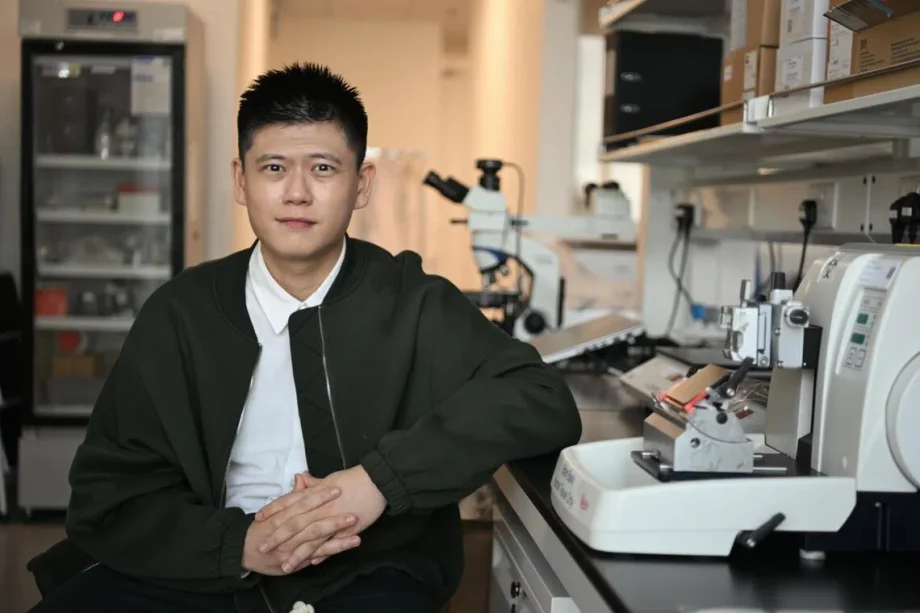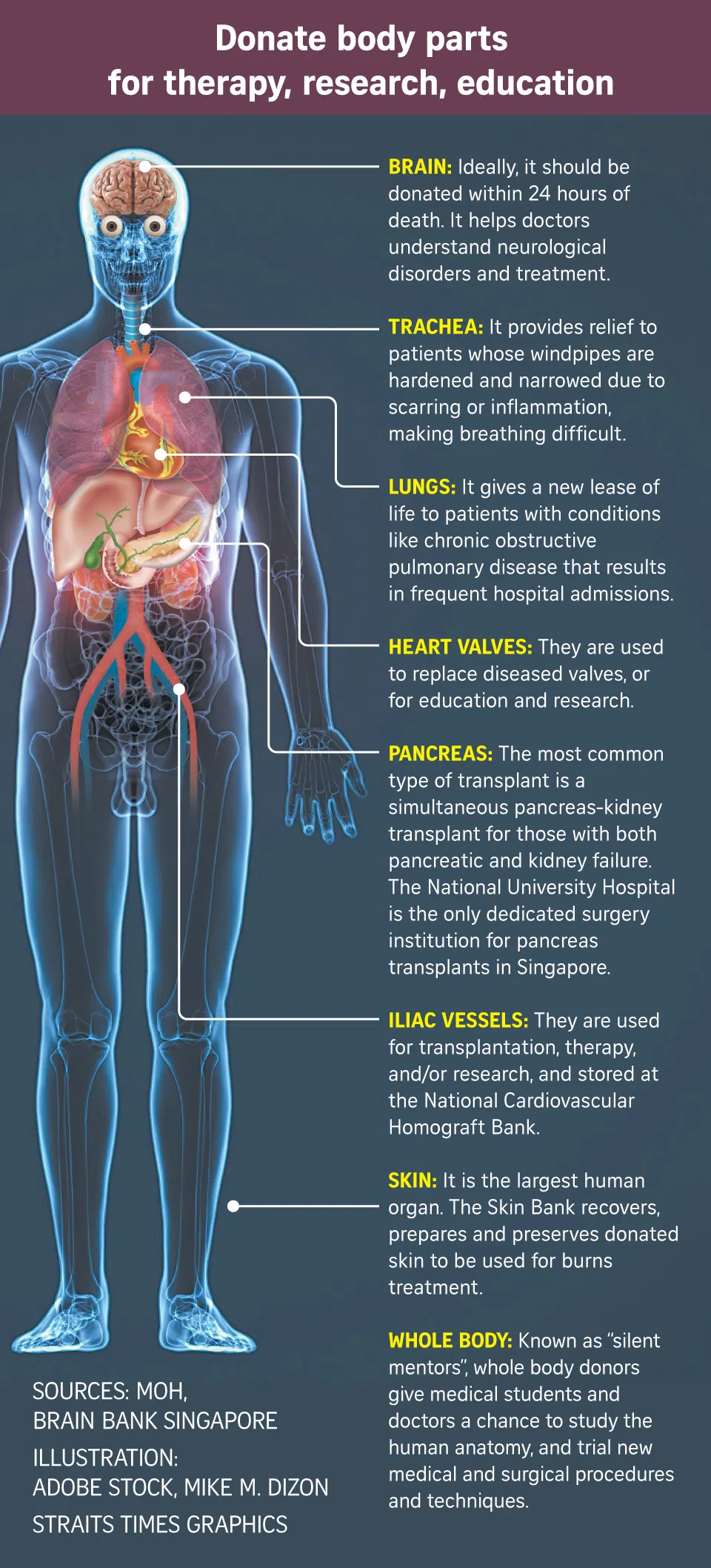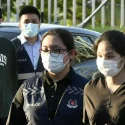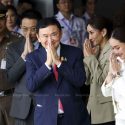SINGAPORE – “When I die, I want my body to keep giving.”
That was how 36-year-old Mr Luo Chen Jun introduced himself.
The former civil servant became determined to donate his body to medical science while volunteering with children with cancer.
“These kids have their entire futures ahead of them, yet life dealt them a harsh blow. Some of them have brain cancer, and most will not live to experience adulthood,” he told The Straits Times.
Then, 1½ years ago, his father developed a brain tumour.
“It turned out to be benign. I was so thankful for the outcome that I asked myself how I could give back. The only way was perhaps to leave my body to science when I die. Not only will it help future doctors understand what makes humans tick, but it is also the last gift anyone could give,” Mr Luo said.
In Singapore, there are several ways individuals can donate organs and their bodies to save lives, contribute to research, or even to advance medical science. Each type of donation serves a unique purpose.
All Singaporean citizens and permanent residents are automatically included under the Human Organ Transplant Act (Hota) to donate their kidneys, liver, heart and corneas for transplant when they die, unless they opt out.
To pledge more organs, individuals need to opt in under the Medical (Therapy, Education and Research) Act or MTERA. Some of the organs and tissues that can be donated under this Act include lungs, trachea, pancreas, heart valves, iliac blood vessels and skin, and donors are able to specify what they would like to donate them for – transplant, education or research.
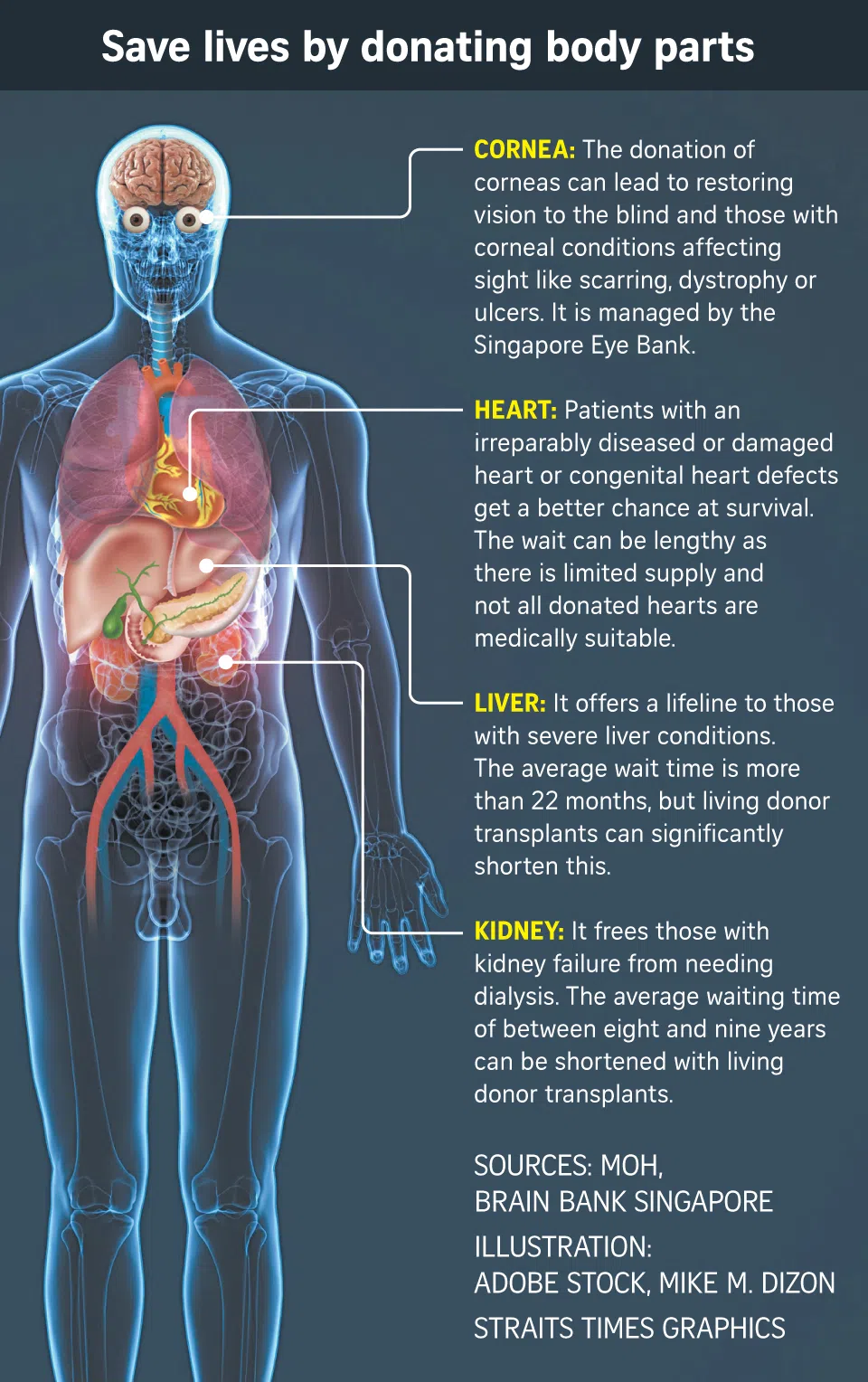
According to a spokesperson for the Ministry of Health, organ donation for transplant and treatment purposes under MTERA will take precedence over donation for education or research.
Yet, it seems there is little mention of brain donation as an option – a concept that Mr Luo had been contemplating.
Mr Luo said he first learnt about whole-body and brain donation during a hospital visit. He often volunteers as a subject for clinical trials, assisting healthcare professionals in their research. “I wanted to play a part in research and therapy for medical conditions and what it does to healthy bodies,” he said.

